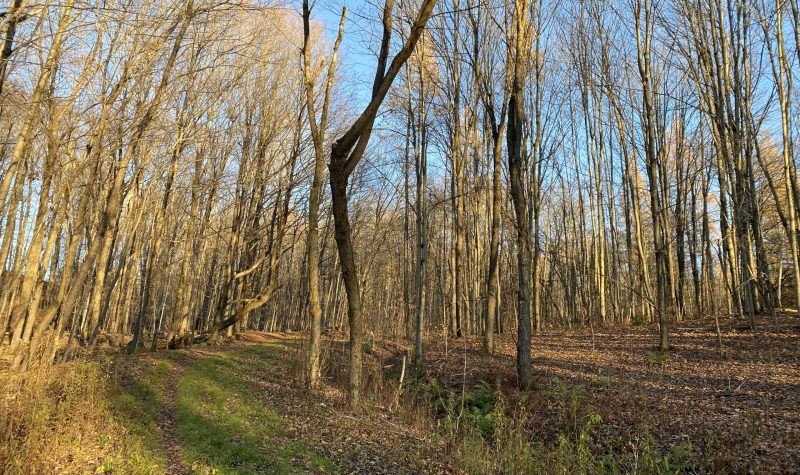The Town of Sutton has negotiated an agreement with the owners of the Vieux-Verger property to purchase the 21-acre site for $1,409,000 million.
The town decided to purchase the property, located between Domaine-Mon-Louis and Seymour Streets, with the hopes of constructing an affordable housing development for young families—a project that the owners have been trying to get off the ground for over a decade.
With the agreement set in place, the next step is to hold a public consultation to present the plans for the affordable housing project to citizens in order to obtain the support and financing that is needed to finalize the purchase of the land.
“We have been working with the owners for the last year to work on the development of a major project, but they’ve been working on this project for 12 years. They never had any kind of commitment from the town. They need a lot of commitment because there are a lot of changes to be made,” explained Robert Benoît, mayor of Sutton.
Benoît added that after 12 years, the owners decided to pass the torch to the municipality to ensure that certain conditions are followed and respected by developers.
“Private developers will develop a project that is under our vision and under our conditions,” he said.
The town hired a company that specializes in property evaluations that came up with the market value price of $1,409,000.
“They compared it to other sales that were happening in the area, and we came up with $85,000 per acre. We said that we’re ready to pay that and we’re ready to sell it at the same price. We won’t make a profit off of it, we don’t want to make a profit. (…) We want to make sure that the price of the land will remain the same, even in five years from now or two years from now,” emphasized Benoît.
There is a housing crisis in Sutton right now, noted Benoît, for a variety of reasons.
“There’s not enough availability of housing, we need to have more lower cost housing, and the short-term rentals didn’t help. A lot of long-term rentals were put on the market for weekends or anything under 31 days,” he said. “We lost about 12 apartments just in the village. Overall, it’s between 75-150. In a small village like Sutton, it’s terrible because the availability at this rate is zero.”
Benoît mentioned that the number of houses/units for the affordable housing project could be anywhere between 50 to 100. There are parts of the land that are ecologically sensitive that will not be developed and that will be conserved in perpetuity.
“We’ve worked with these owners and they’ve worked on several aspects of the houses or the buildings they would like. We would like it to be ecological buildings. We want them to very specifically be tied to the rural architecture of Sutton,” he highlighted.
As the last big piece of land in the village that can be developed, Benoît said this is a major opportunity to attract young families to the village.
A public consultation will be held early next year to approve a borrowing-bylaw in order for the town to officially purchase the land.
“We need more young families in the town. We have an excellent school. I was with 50 kids the other day who dreamt of the future of Sutton. We’re a society where the average age is near 60 years old. This is a big opportunity to have affordable houses for young families because at this point in time the increase in prices for the last three years has been 40 per cent,” explained Benoît.
There are other affordable housing projects in the works for Sutton, including “tiny houses” for seasonal workers.
For more information, listen to the full interview below:


